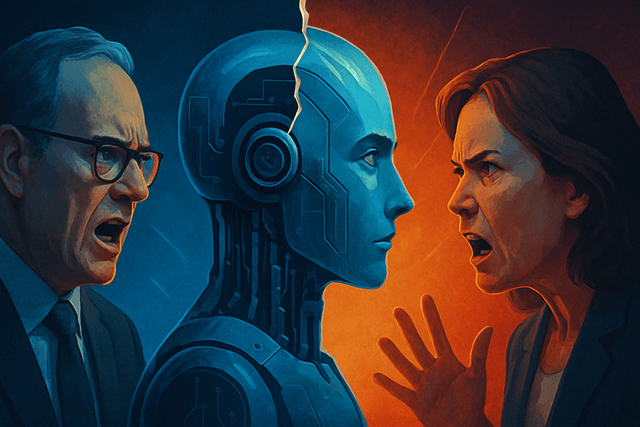OpenAI has experienced unprecedented growth, with CEO Sam Altman revealing the company has reached 800 million weekly active users. "I have never seen growth in any company, one that I've been involved with or not, like this," Altman stated during a TED 2025 interview. "The growth of ChatGPT — it is really fun. I feel deeply honored. But it is crazy to live through, and our teams are exhausted and stressed."
Altman has made increasingly bold claims about AI's future, writing in a recent blog post: "We are now confident we know how to build AGI as we have traditionally understood it." He added that OpenAI is beginning to turn its attention beyond AGI to superintelligence. This optimism is shared by other industry leaders, with both Altman and Anthropic CEO Dario Amodei predicting AGI could arrive by 2025 or 2026. Amodei envisions thousands or even millions of hyper-capable AI systems tackling tasks "in every field of knowledge work."
However, a significant perception gap exists between AI experts and the general public. While 76% of experts believe AI will personally benefit them, only 24% of the public shares this optimism, with 43% expecting AI to cause them harm. Similarly, 73% of experts believe AI will improve how people do their jobs over the next 20 years, compared to just 23% of the public.
This divide extends to broader societal impacts. A recent survey found that 56% of AI experts believe AI will have a positive impact on the United States over the next 20 years, while only 17% of the general public agrees. Interestingly, both groups share concerns about AI's role in elections and journalism. Just 11% of experts and 9% of the public believe AI will positively impact U.S. elections, with 61% of experts and 50% of the public expecting harm. Similarly, small percentages of experts (18%) and the public (10%) believe AI will benefit news media.
The potential for workforce disruption remains a key concern. AI is already impacting the labor market, resulting in job cuts and departmental downsizing. Experts warn that mass unemployment could result from AI's rise without appropriate government policies and reskilling programs. Addressing these concerns, Altman has emphasized that "democratizing the economic benefits begins with putting these tools in the hands of people." He views AI as "fundamentally a productivity-driving technology" while acknowledging that "the big question isn't if it will grow the economic pie — it's who gets how much of a slice."
As we stand at this technological crossroads, the AI community recognizes that generative AI, with its vast promise and profound questions, cannot be uninvented. The path forward requires vigilant oversight, new regulatory frameworks, and an unwavering commitment to ethical, transparent innovations that align with human values.

